The World & Vietnam Newspaper highlights some of the day's outstanding international events.
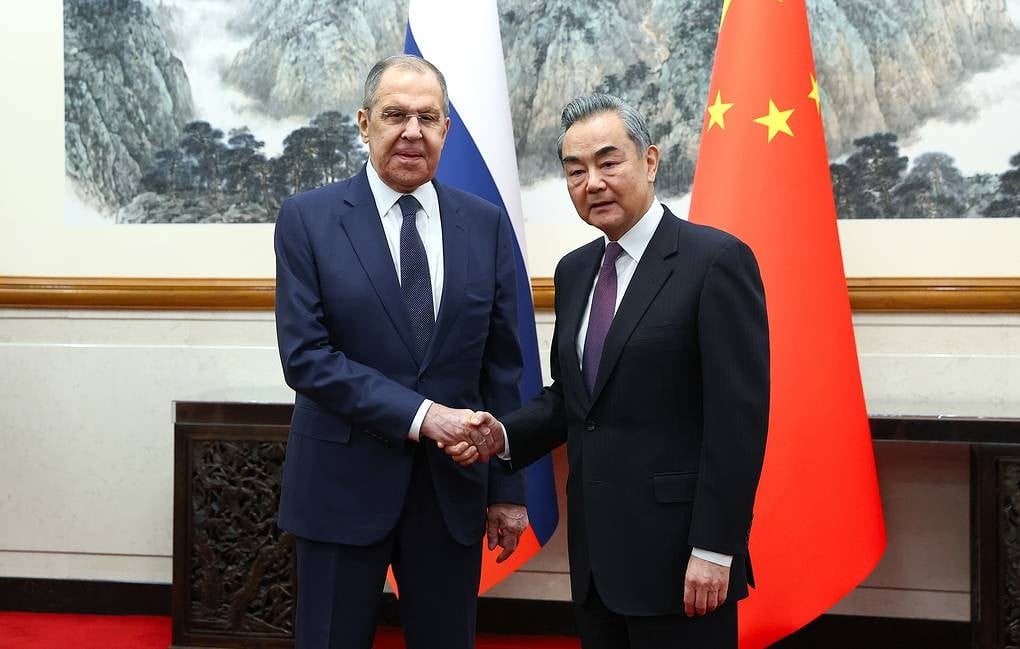 |
| Russian Foreign Minister Sergey Lavrov (left) meets and holds talks with his Chinese counterpart Wang Yi in Beijing on April 9. (Source: TASS) |
Russia-Ukraine
* US sends Iranian weapons to Ukraine: On April 9, the US military announced that it had transferred to Ukraine small arms and ammunition seized during the transfer by Iranian forces to the Houthi movement in Yemen.
On social media, the US Central Command stated: "The US government transferred more than 5,000 AK-47s, machine guns, sniper rifles, RPG-7s and more than 500,000 rounds of 7.62 mm ammunition to the Ukrainian armed forces" last week. (AFP)
* The Netherlands will provide Kiev with F-16 fighter jets to strengthen Ukraine's air capabilities, Dutch Defense Minister Kajsa Ollongren announced on April 9.
However, the delivery schedule of these fighters depends on the availability of Ukrainian pilots and technicians, as well as the infrastructure needed to accommodate the aircraft. (National Interest)
| RELATED NEWS | |
| Switzerland-Ukraine with ambitions for peace conference; Russia indifferent, expressing interest in another country's idea | |
Russia-China
* Russian Foreign Minister Sergey Lavrov visited China from April 8 and held talks with his host counterpart Wang Yi on April 9 in Beijing.
During the talks, Mr. Lavrov emphasized: “Thanks to the efforts of the two leaders, the comprehensive partnership between Russia and China has reached an unprecedented level in history.”
Both sides pledged to support the bilateral relationship as well as each other, and are willing to further deepen the stable relationship between the two countries.
Russia and China agreed to strengthen counter-terrorism cooperation, including through multilateral mechanisms, following the terrorist attack at the Crocus City Hall theater in Moscow on March 22 that killed nearly 150 people.
Both Beijing and Moscow strongly oppose the use of unilateral sanctions in international relations and agreed to launch a dialogue on the "task of creating Eurasian security."
Foreign Minister Lavrov and his counterpart Wang Yi are also pushing for a summit between the heads of state of Russia and China in the coming months. (TASS)
* Chinese President Xi Jinping met with Foreign Minister Lavrov, stressing that Beijing and Moscow have embarked on a new path of harmonious coexistence and mutually beneficial cooperation among major countries and neighbors.
According to the leader, this benefits the two countries and their peoples, and contributes wisdom and strength to international fairness and justice.
Mr. Xi affirmed that Beijing always attaches importance to developing relations with Moscow and is willing to step up bilateral communication as well as strengthen multilateral strategic coordination within the BRICS and the Shanghai Cooperation Organization (SCO).
The Chinese president said that China and Russia will show more responsibility, unite countries in the Southern Hemisphere in the spirit of equality, openness, transparency and inclusiveness, promote reform of the global governance system and actively lead the building of a community with a common destiny. (THX)
| RELATED NEWS | |
| Russian and Chinese foreign ministers hold talks: Beijing affirms support for Moscow, joins hands to 'build security' in Asia-Europe, declares opposition to one thing | |
Europe
* Lithuania has opened an investigation into the vandalism of the Russian Embassy over two consecutive nights, according to a statement from the Baltic state's national police on April 8.
According to Lithuanian police, two bottles containing liquid believed to be flammable were thrown at the Russian Embassy between 2 and 3 a.m. on the past two nights. Although no fire occurred, a wall of the building was damaged by the bottles. (The Moscow Times)
* The self-proclaimed Islamic State (IS) terrorist organization threatened to attack four stadiums: Emirates (UK), Parc des Princes (France), Metropolitano and Santiago Bernabeu (Spain), where the quarter-final matches of the English Premier League (Champions League) will take place this week.
After receiving the warning, the British, French and Spanish governments confirmed that the situation was "under control". (Euronews)
* Six European countries signed a Joint Declaration on protecting infrastructure in the North Sea on April 8, including Belgium, the UK, Denmark, Germany, Norway and the Netherlands.
Stressing the importance of protecting the facility now and in the future, UK Energy Security Minister Andrew Bowie said: "The North Sea is a driving force behind Europe's renewable energy and net zero emissions ambitions, helping to strengthen the continent's energy security." (Reuters)
* Ukraine agrees to open new border checkpoint with Hungary: On April 8, the governments of Ukraine and Hungary agreed to amend the agreement on border traffic control, thereby allowing the opening of a new checkpoint for cyclists at Velyka Palad-Nagyhodos.
The amended agreement also allows empty heavy vehicles with a load capacity of over 7.5 tons to pass through the Luzhanka-Beregsurany checkpoint.
Ukraine is also considering building a new cargo checkpoint at Dyida-Beregradoc to increase the capacity of its border with Hungary. (The Kyiv Independent)
* British Foreign Secretary David Cameron is in the US and is expected to hold talks with his host counterpart Antony Blinken about the conflict in the Middle East and Ukraine.
Mr Cameron is expected to urge the US House of Representatives to soon pass a $60 billion military aid package for Ukraine, which has been delayed for months.
The British Foreign Secretary will also call for a transparent investigation into last week's Israeli air strike in the Gaza Strip that killed seven aid workers, including three British nationals.
The British government has faced calls to suspend arms exports to Israel following the incident. The two foreign ministers are expected to discuss the issue, but will not announce any policy changes, according to government sources.
The statement added that talks between the two top diplomats would also focus on “a roadmap to a sustainable ceasefire and the delivery of greater humanitarian aid in the Gaza Strip.” (Reuters)
* British Prime Minister Rishi Sunak and French President Emmanuel Macron discussed increasing supplies of ammunition, drones and air defense systems to Ukraine, as well as the conflict in the Gaza Strip.
The two leaders expressed concern about the humanitarian situation in the Gaza Strip and agreed on the importance of an immediate cessation of hostilities in the region. (Sputnik)
* North Atlantic Treaty Organization (NATO) naval exercise Sea Shield 24 in Romania from April 8-21, focusing on training all aspects of military operations, aiming to increase the level of operational cooperation between the participating parties.
The exercise involved 2,200 servicemen, 135 ships, aircraft and vehicles from 13 NATO countries including Bulgaria, France, Georgia, Greece, Italy, the UK, Moldova, the Netherlands, Poland, Portugal, Turkey, the US and Romania. ( Romania Insider)
| RELATED NEWS | |
| NATO launches largest ever naval exercise in Romania | |
Middle East-Africa
* Israel announced an attack on the Syrian army's military infrastructure in Mahajjah, about 30 km from the demilitarized zone separating the two sides, on the night of April 8.
Israel said that earlier, its military had determined that a missile was launched from Syrian territory on April 8 into the Israeli-occupied Golan Heights but caused no casualties, and that the attack was in response to the rocket launch site.
The incident comes days after an airstrike destroyed the consular building of the Iranian Embassy in the Syrian capital Damascus, killing several senior Iranian military commanders. Iran blamed Israel for the attack. (Hurriyet Dail News)
* Iran opens new consular office in Syria on April 8, a week after the attack on the country's former consulate building in Damascus, Syria.
Iranian Foreign Minister Hossein Amir-Abdollahian and his Syrian counterpart Faisal Mekdad attended the inauguration of the office, not far from the old building.
Foreign Minister Amir-Abdollahian said Israel would be “punished” if it was behind the attack on the consulate, but did not provide specific details. (Mehr, Reuters)
* Turkey tightens imports, Israel retaliates: On April 9, the Turkish Ministry of Commerce announced that Ankara imposed immediate export restrictions on 54 different types of products to Israel, including iron and steel, construction equipment and products, machinery, etc. until a ceasefire is declared in Gaza.
The move was in response to Israel blocking Ankara's efforts to drop aid to Palestinians in the Gaza Strip.
Responding to this move, Mr. Israel Katz, Israeli Foreign Minister, accused Ankara of "unilaterally violating" trade agreements, once again "sacrificing the economic interests of the Turkish people to support Hamas".
He said Israel would respond with its own trade restrictions on Turkish products. (Reuters)
* Israel has set a date to attack Rafah in the southern Gaza Strip, according to Prime Minister Benjamin Netanyahu, who said the operation was necessary to win against Hamas.
The move comes as Israeli negotiators are in Cairo discussing international efforts to broker a ceasefire with Hamas.
According to the United States, Israel's top ally, attacking Rafah would be a mistake and the country must have a credible plan to protect civilians. (THX)
* The Security Council (SC) considered the admission of Palestine as a full member of the United Nations (UN) and decided to refer this procedure to the Committee on Admission of New Members.
At the Security Council, a member applying for membership needs to receive at least nine out of 15 votes in favor of its members and no permanent member has a veto. The UN General Assembly will decide on the admission of a new member based on the recommendation of the Security Council. (Reuters)
* Mr. Ousmane Sonko officially took office as Prime Minister of Senegal on April 8, after receiving the transfer of power from his predecessor Sidiki Kaba.
Mr. Ousmane Sonko, appointed by Senegalese President Bassirou Diomaye Diakhar Faye on April 2, stated: "The transition took place under very good conditions, allowing us from this moment to begin carrying out the responsibilities entrusted to us." (THX)
| RELATED NEWS | |
| Iran takes new action after consulate building in Syria attacked | |
Asia-Pacific
* China says NATO should not “extend its tentacles” into the Asia-Pacific: On April 9, at a press conference, Chinese Foreign Minister Wang Yi said that Beijing opposes confrontation between blocs, especially in the Asia-Pacific region.
“It is necessary to adhere to true multilateralism and oppose any ‘narrow group’ that engages in confrontation between blocs, this is especially true in the Asia-Pacific region, where we are located. NATO must not ‘stretch its tentacles’ into our common home,” he advised.
He stressed that any confrontational statements and actions are unpopular and have no future in the Asia-Pacific region. (Sputnik)
* Japanese Prime Minister Kishida Fumio began his five-day visit to the US on the evening of April 8 (Japan time). This is the first visit by a Japanese Prime Minister to the US as a state guest since the visit of the late Prime Minister Abe Shinzo in 2015.
Before boarding the plane, Mr. Kishida emphasized the importance of the Japan-US alliance in the context of the international community facing complex and diverse challenges, as well as the increasingly severe security environment surrounding Japan. (Kyodo)
* Possibility of Japan joining AUKUS: On April 8, the three countries participating in the US, UK and Australia Security Treaty (AUKUS) announced that they are considering the possibility of cooperating with Japan in advanced technology projects under Pillar II of this Treaty.
Pillar II focuses on advanced technologies, from artificial intelligence and quantum computing to undersea capabilities and hypersonic weapons.
On the same day, US Department of Defense Deputy Press Secretary Sabrina Singh also said that AUKUS is considering cooperation with Japan on advanced capability projects because Tokyo has the strength and close defense cooperation relationship with all three AUKUS member countries.
However, Prime Minister Anthony Albanese played down the possibility that Japan could join AUKUS anytime soon, noting that any cooperation would be done on a project-by-project basis as the treaty changes to add new members. (Reuters, Financial Times)
| RELATED NEWS | |
| An Asian country was 'chosen' by 3 AUKUS countries | |
America
* Ecuadorian President Daniel Noboa defended the decision to raid the Mexican Embassy in Quito on April 5 to arrest former Ecuadorian Vice President Jorge Glas.
Speaking on April 8, Mr. Noboa stated: "I have made special decisions to protect national security, the rule of law and the dignity of the people. My duty is to carry out the decisions of justice and we cannot allow convicted criminals who have committed serious acts to seek asylum."
Meanwhile, on the same day, Ecuadorian Foreign Minister Gabriela Sommerfeld said that the country is open to restoring relations with Mexico, after the North American country suspended relations with Quito over the incident and sent all diplomatic staff home. (Sputnik)
Source


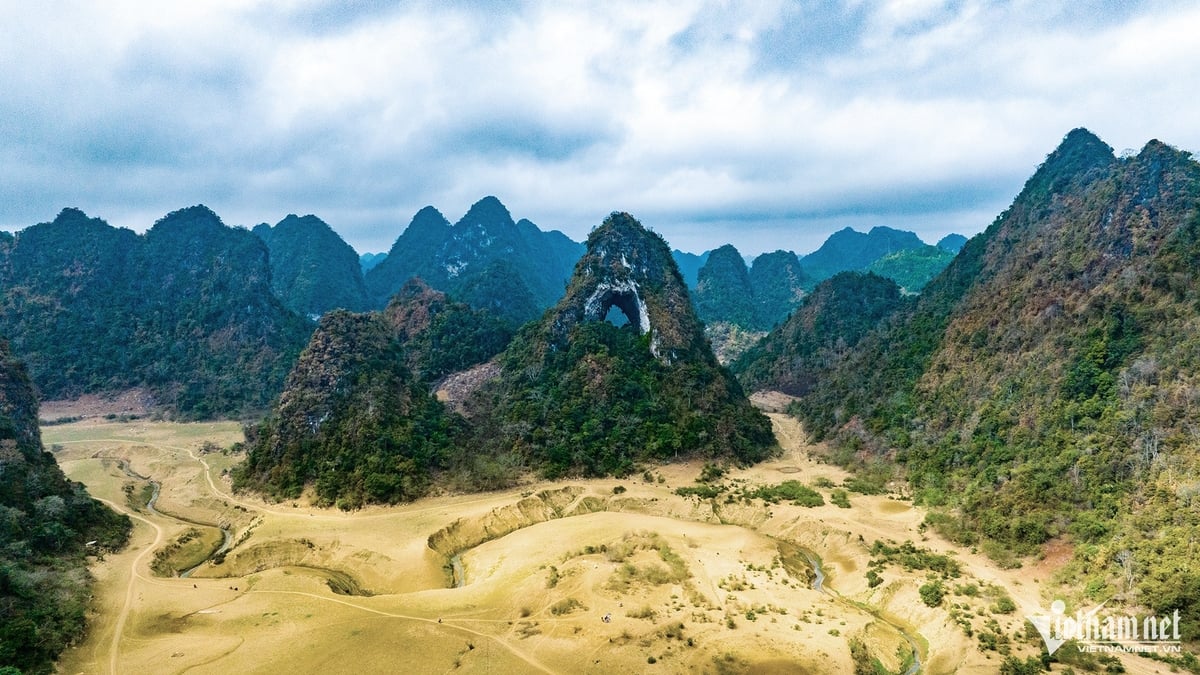


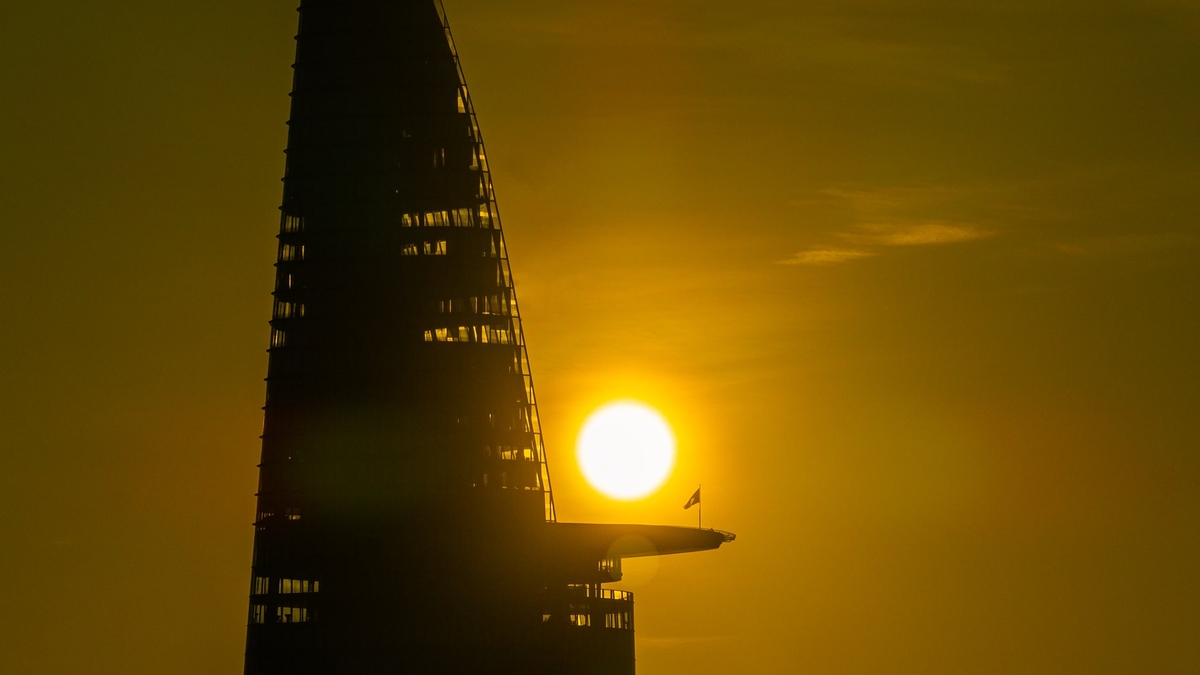
![[Photo] Buddha's Birthday 2025: Honoring the message of love, wisdom, and tolerance](https://vphoto.vietnam.vn/thumb/1200x675/vietnam/resource/IMAGE/2025/5/12/8cd2a70beb264374b41fc5d36add6c3d)







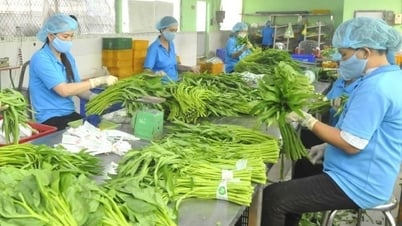
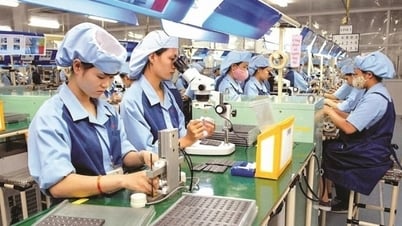


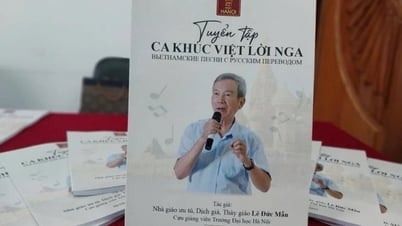
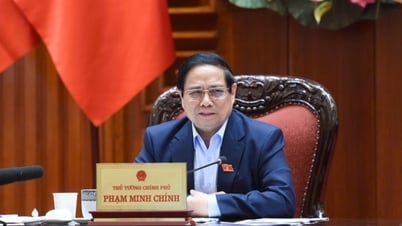






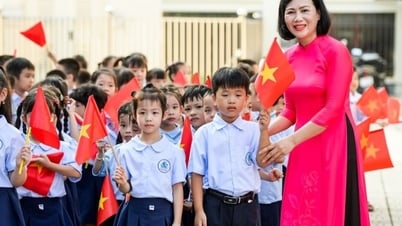
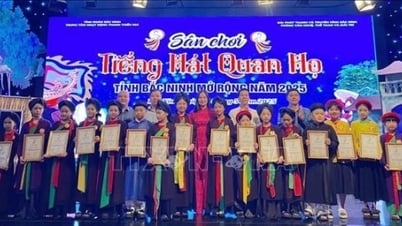

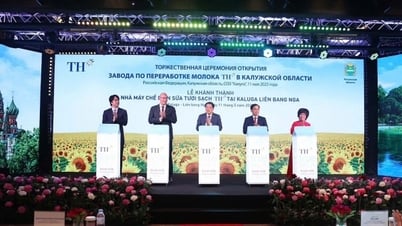
![[Photo] General Secretary To Lam arrives in Minsk, begins state visit to Belarus](https://vphoto.vietnam.vn/thumb/1200x675/vietnam/resource/IMAGE/2025/5/11/76602f587468437f8b5b7104495f444d)
![[Photo] General Secretary To Lam meets and expresses gratitude to Vietnam's Belarusian friends](https://vphoto.vietnam.vn/thumb/1200x675/vietnam/resource/IMAGE/2025/5/11/c515ee2054c54a87aa8a7cb520f2fa6e)
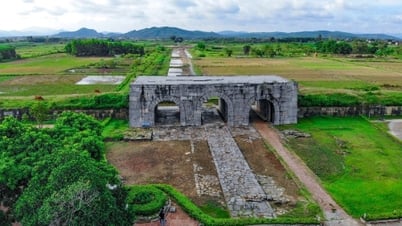

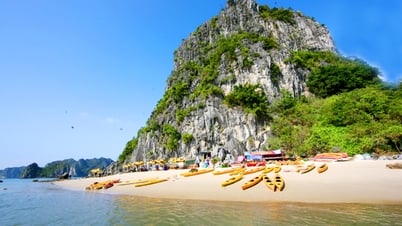







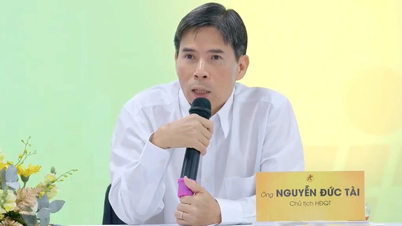



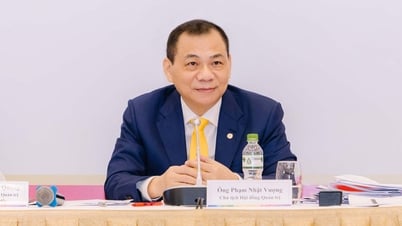

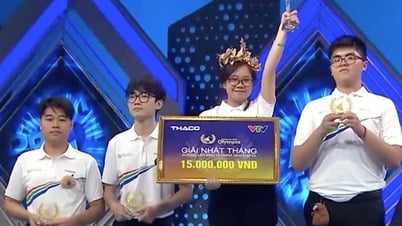





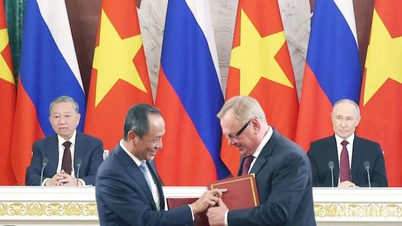

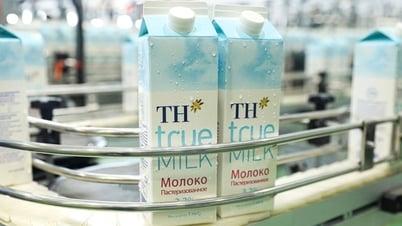

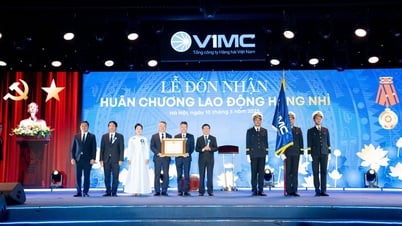
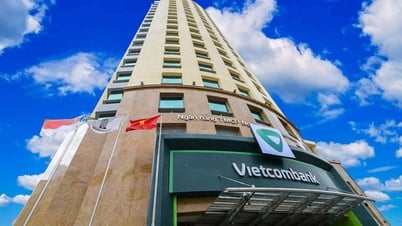

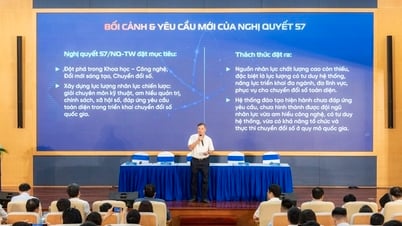
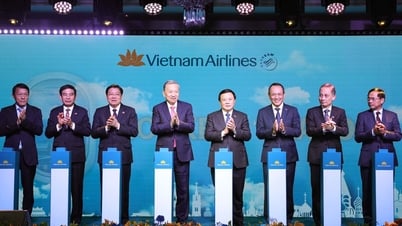


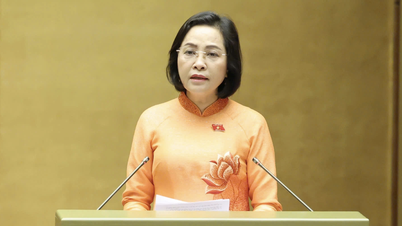


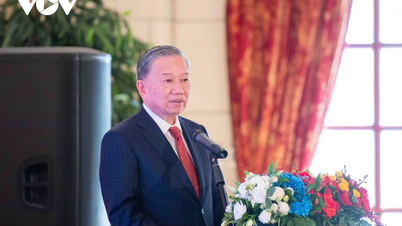

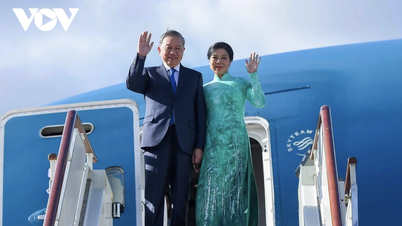
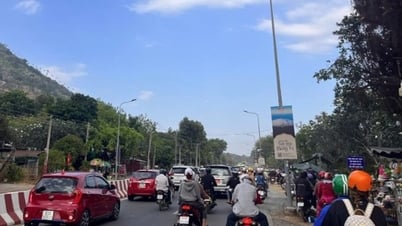


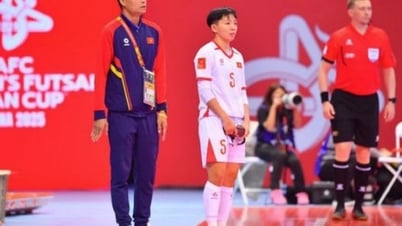

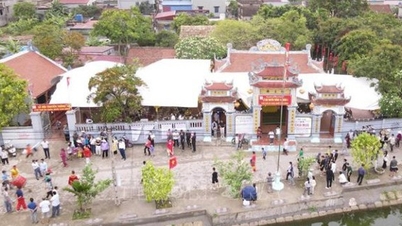



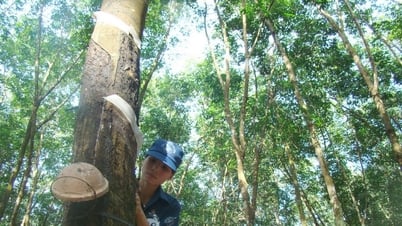


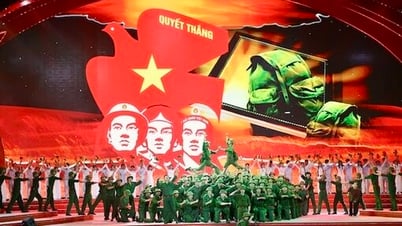

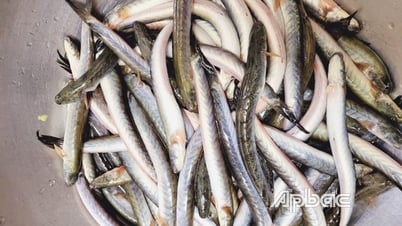













Comment (0)